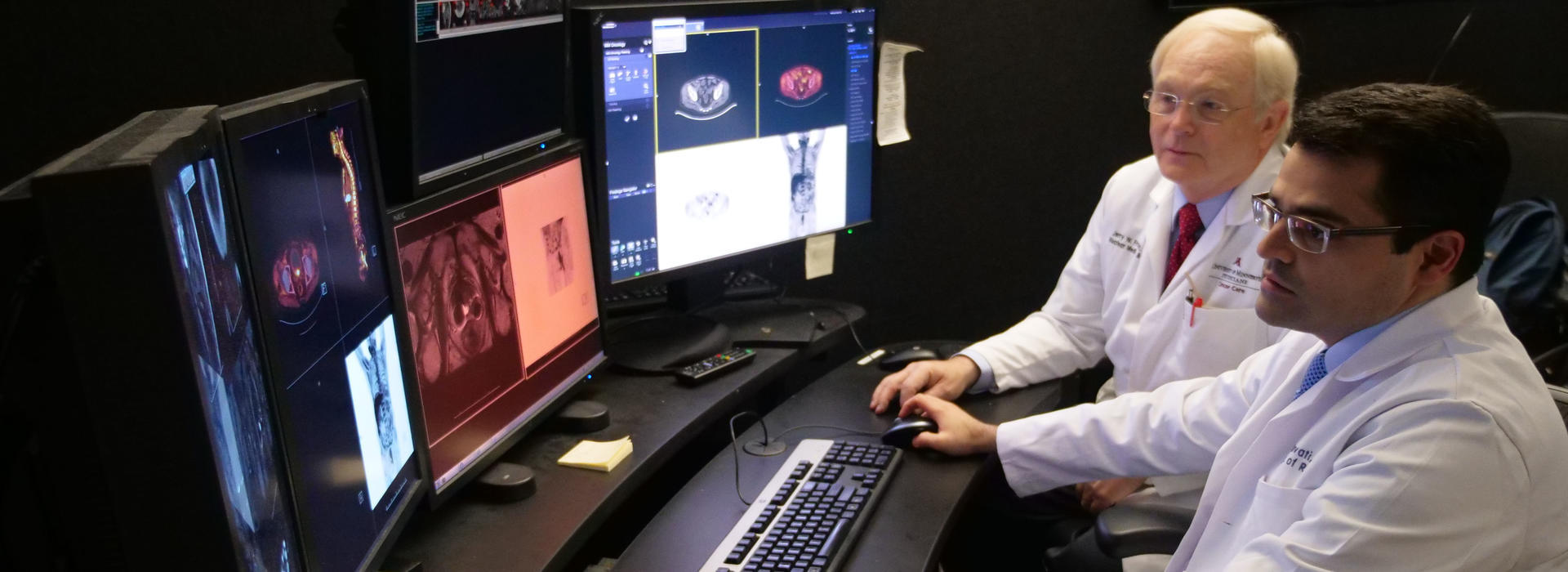
Diagnostic Radiology Residency Program
Program Overview
While virtually all of our residents go on to do fellowships and many end up in academic or other non-community settings, the primary goal of the residency is to enable our trainees to become outstanding board certified radiologists who can function easily in busy and diverse practice settings.
Outstanding patient care is our first priority and is the example we want to set for our trainees. Diverse patient and disease exposure at oncology and transplant rich university and pediatric hospitals, level 1 trauma and community exposure at a large urban county hospital, and large regional veterans hospital experience, is the cornerstone of the educational program with appropriate didactics and other educational resources. There are abundant opportunities for research, professional society and administrative involvement to round out the resident’s education.
Contact
Diagnostic Residency Program Director
Noelle Hoven, MD
ekwoc002@umn.edu
Diagnostic Residency Associate Program Director
Tara Holm, MD
geng0005@umn.edu
GME Program Administrator
Shari Johnston
sharij@umn.edu
612-626-5589
Application
A complete application via ERAS must include:
- Three letters of recommendation
- Dean's letter (MSPE)
- Personal statement
- Curriculum vitae
- Official medical school transcript(s)
- USMLE (Step I and Step II, if available) or COMPLEX scores
- Photograph
Application deadline November 1.
Eligibility
To be eligible for appointment, the clinical-base candidate must be:
- A student in good standing at an American or Canadian medical school approved by the Council of Medical Education of the American Medical Association.
- A rotating or straight internship approved by the ACGME (Accreditation Council for Graduate Medical Education) also meets admission requirements and may be used to satisfy the PGY-1 requirement.
- Graduates of foreign medical schools must hold an ECFMG or FLEX certificate or possess a license to practice medicine in the United States.
- A Minnesota medical license is not required for appointment, but each resident should make the necessary arrangements early in their CA-3 year if they anticipate remaining in Minnesota.
- Applicants with a foreign medical degree should check with the Educational Commission for Foreign Medical Graduates (ECFMG) for information.
ESIR Designation
Early Specialization in Interventional Radiology (ESIR) has been approved by the ACGME. The rationale of this program is to develop expertise in clinical management, in addition to providing greater procedural experience. Participation in this program allows the resident to receive credit for the first year of the Interventional Radiology-Independent program; thereby, completing training in six years.
Residents who are interested should contact both the Diagnostic Radiology and Interventional Radiology Program Directors via a brief letter stating their interest by April 1.
Interventional Radiology training includes exposure to a wide breadth and high volume of life-saving interventional vascular and oncologic procedures, as well as cutting-edge interventional treatments performed only at select highly experienced medical centers. In addition, residents learn how to image complicated vascular pathology using state-of-the-art scanners and protocols critical to guiding interventional management. Residents typically interpret more than 500 CT and MR angiography examinations by the end of their four years in diagnostic training.
Contact
Diagnostic Residency Program Director
Noelle Hoven, MD
ekwoc002@umn.edu
IR Independent Residency Program Director
Reza Talaie, MD
rtalaie@umn.edu
GME Program Administrator
Breckyn Avery
avery203@umn.edu
612-625-6916
ESIR Timeline
- Residents are notified of the number of available ESIR positions available per class following the match in mid-March. ESIR may not be an option for every residency class.
- Residents should contact the DR and IR program directors with a one paragraph letter of interest by April 1.
- Interested residents will be interviewed by a selection committee and assigned an IR rotation at UMMC early in their R2 year.
- Residents selected to participate in ESIR will be notified by October 1 of their R2 year.
- ESIR residents remain in and graduate from the DR program.


